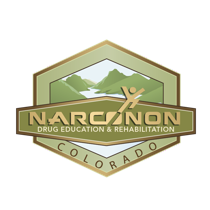Why Are We in the Middle of an Opiate Epidemic?

Are you serious? Today, I read an article about a large medical software company manipulating the doctor-patient relationship in order to increase the sales of opiate medications. You read that right; I don’t think I could make that stuff up. You can read the full article here.
Here is an excerpt:
“Practice Fusion Inc. (Practice Fusion), a San Francisco-based health information technology developer, will pay $145 million to resolve criminal and civil investigations relating to its electronic health records (EHR) software, the Department of Justice announced today.”
Yep, this really happened. Here’s another excerpt:
“Practice Fusion executed a deferred prosecution agreement with the U.S. Attorney’s Office for the District of Vermont based on its solicitation and receipt of kickbacks from a major opioid company to arrange for an increase in prescriptions of extended-release opioids by healthcare providers who used Practice Fusion’s EHR software.”
“Practice Fusion executed a deferred prosecution agreement with the U.S. Attorney’s Office for the District of Vermont based on its solicitation and receipt of kickbacks from a major opioid company to arrange for an increase in prescriptions of extended-release opioids by healthcare providers who used Practice Fusion’s EHR software.”
Basically, the company that made the Electronic Health Record (EHR) software used the software to persuade doctors to prescribe even more opiate medications to patients. Here’s my take on what happened, along with a breakdown of what EHR is and how it factors into the doctor, patient care.

EHR is software that tracks patient information in an unbiased manner. To simplify this, it’s kind of like software that doctors use to look up and record patient case information. Doctors can collect patient information and input symptoms. The software will return a possible diagnosis and care information. In this case, the software company was “injecting itself” into the doctor-patient relationship and arranging increased prescriptions of extended-release pain medications, through the software. They received money for doing this, from a drug company. This is called a kickback.
For some perspective on this, here is an experience I had years ago. In 2002, I was in a car accident. I suffered some neck and back injuries that were pretty painful. I remember being referred to a pain management doctor by my lawyer. The doctor actually asked me what type of insurance I had and, when I answered the company name, he said: “Well, at least you won’t have to be in any pain.” I was then prescribed an increasing regimen of pain meds that went from Hydrocodone pills to oxycodone pills to fentanyl lollipops. This happened over the course of a year. By year two, I was taking so much pain medication that I couldn’t do anything without having a support system of drugs with me at all times.
In 2004, when I finally tried to talk to my doc about my crippling addiction to the meds he prescribed, he offered to switch me to “safer opiates.” Basically, the same drugs in different forms. He refused to even talk about tapering or meds that would help me get off the drugs. He actually said that, due to my level of functionality with my injuries, I would need to stay on medications in order to keep my pain to a manageable level. He also said that surgery or other treatments would be too risky. I know he came to this conclusion with the help of EHR. Seriously? I should just stay on meds that were crippling me and not actually do anything to treat my condition or heal me? Sounds insane to me now.
When I think about where I was and how I got addicted to pain meds, I wonder how many other people have a similar experience. It is very easy to get hooked on opiate pain meds. That is how they work. Doctors know this, and they have to be very careful with patients when they prescribe pain meds. They rely on EHR software to help them make good decisions every day when it comes to patient care. The idea that a company that makes this kind of software actually used it to profit at the expense of the doctors and patients it is supposed to serve is abhorrent. Is there any recourse? Any justice?
According to the article:
“The criminal Information charges Practice Fusion with two felony counts for violating the Anti-Kickback Statute (AKS), 42 U.S.C. § 1320a-7b(b)(1), and for conspiring with its opioid company client to violate the AKS, 18 U.S.C. § 371. This case is the first-ever criminal action against an EHR vendor and the unique Deferred Prosecution Agreement imposes stringent requirements on Practice Fusion to ensure acceptance of responsibility and transparency as to its underlying conduct, and to invest heavily in compliance overhauls and an independent oversight organization. The Deferred Prosecution Agreement requires Practice Fusion to pay a criminal fine of $25,398,300 and forfeit criminal proceeds of nearly $1 million.”
Now hold on a second. This company engaged in practices that caused doctors to incorrectly prescribe the most addictive drugs on the planet—for money. They allowed the drug company they were working with to profit by intervening in the healthcare of a patient so that they were given more and more painkillers, so they made more money. Think about that. If a person engaged in something that caused them to make money by illegally providing opiates in a reckless manner, that would be called drug dealing. If caught, that person would go to jail. Why aren’t the executives from this company serving jail time? Seriously this company makes millions. They had to pay pocket change.

It is easy to get addicted to opiates. Humans don’t need any help with this because we are wired to do so. It’s in our brain chemistry. The fact that opiates are so widely prescribed and available led to this epidemic we are currently writhing in. This is a problem that is incredibly difficult to dissect, figure out and understand, let alone solve. As an addiction counselor, I try to be part of the solution. I work every day to help people salvage their lives and come back from the brink of addiction. It makes me sick to think about the people that are profiting from throwing proverbial wrenches into any solutions we can come up with. It also makes me ill to know that these people are slapped on the wrist and allowed to continue their practices, in the confines of the law.
So why are we in an opiate epidemic? That question seems very difficult to answer. Or, maybe it doesn’t Opiates are severely addictive. They are also widely prescribed and available. People get on opiates, and they eventually can’t stop taking them. If this were the entirety of the situation, it might be easier to deal with. The thing is, there are many more variables that factor into the problem. There are social, economic and cultural considerations that exist in and study of addiction. Then there are the head-spinningly ridiculous factors that only become known after a major legal case, like this one you can read about in the LA Times.
Here is an excerpt:
“John Kapoor, a billionaire whose company developed a liquid version of the opioid painkiller fentanyl, was arrested in Phoenix on Thursday on charges that he spearheaded a scheme to bribe doctors and pharmacists across the nation to boost sales—largely to patients who did not need the medication.”
This company made Fentanyl Spray. They took the most addictive substance on earth and made it easier to use. When they weren’t happy with their sales figures, they concocted a bribery scheme that encouraged doctors to prescribe more and more of the drug. Check out what they did when insurance companies didn’t want to pay for the drugs:
“Though the bribes, which included speaker fees, food, entertainment, and administrative support to medical practitioners across the country, helped increase the company’s revenue, the court documents say, insurance agencies were reluctant to approve payment for the drug when it was prescribed to patients without cancer.
“To get around this roadblock, Kapoor allegedly told employees to misrepresent the type of patients using the drug. Most prescriptions were given to people not diagnosed with cancer, according to the indictment.”
This is the stuff that directly adds to the epidemic. It causes more drugs to be prescribed, for more reasons that are seemingly made up for profit. As we pour money into ending the opiate crisis, people and companies like these find ways to pour money into their pockets. They do this at the expense of everyone involved, and it happens over and over.
What is the solution to this? After careful thought, the only thing I can come up with is this: Unethical drug companies will continue to profit illegally, as long as our government allows it to happen. They will keep doing what they do—every day. The thing is, so will I. I will keep doing what I do to help former addicts recover their lives, rebuild their relationships, and learn to live successful lives. This is something we can all do. We can all work at educating people and helping those who are afflicted find help. I know that this isn’t going to end the epidemic but, as long as the John Kapoors and Practice Fusions of the world continue to slap us in the face like this, I don’t have to take it lying down. I can fight back.
Sources:


